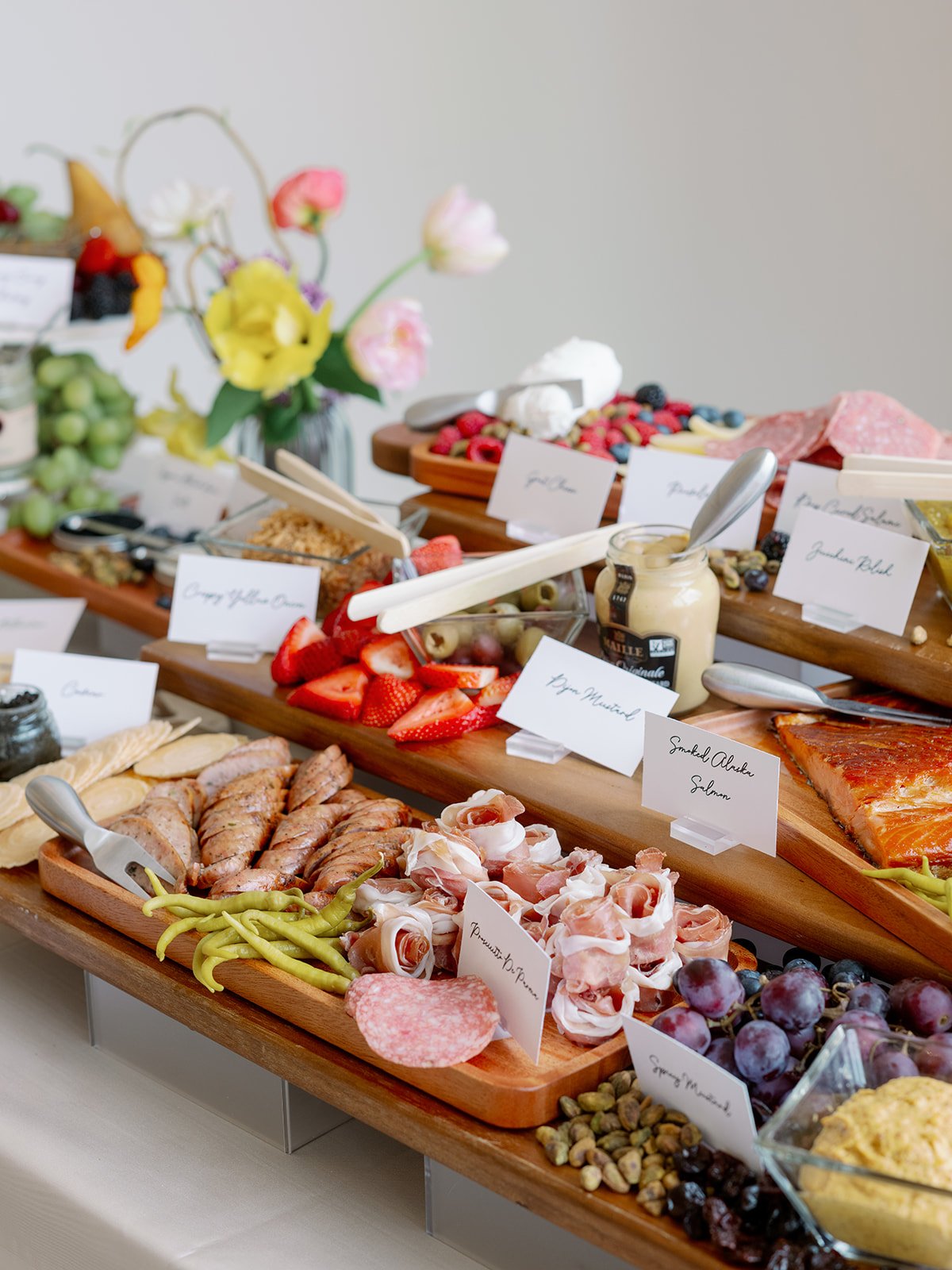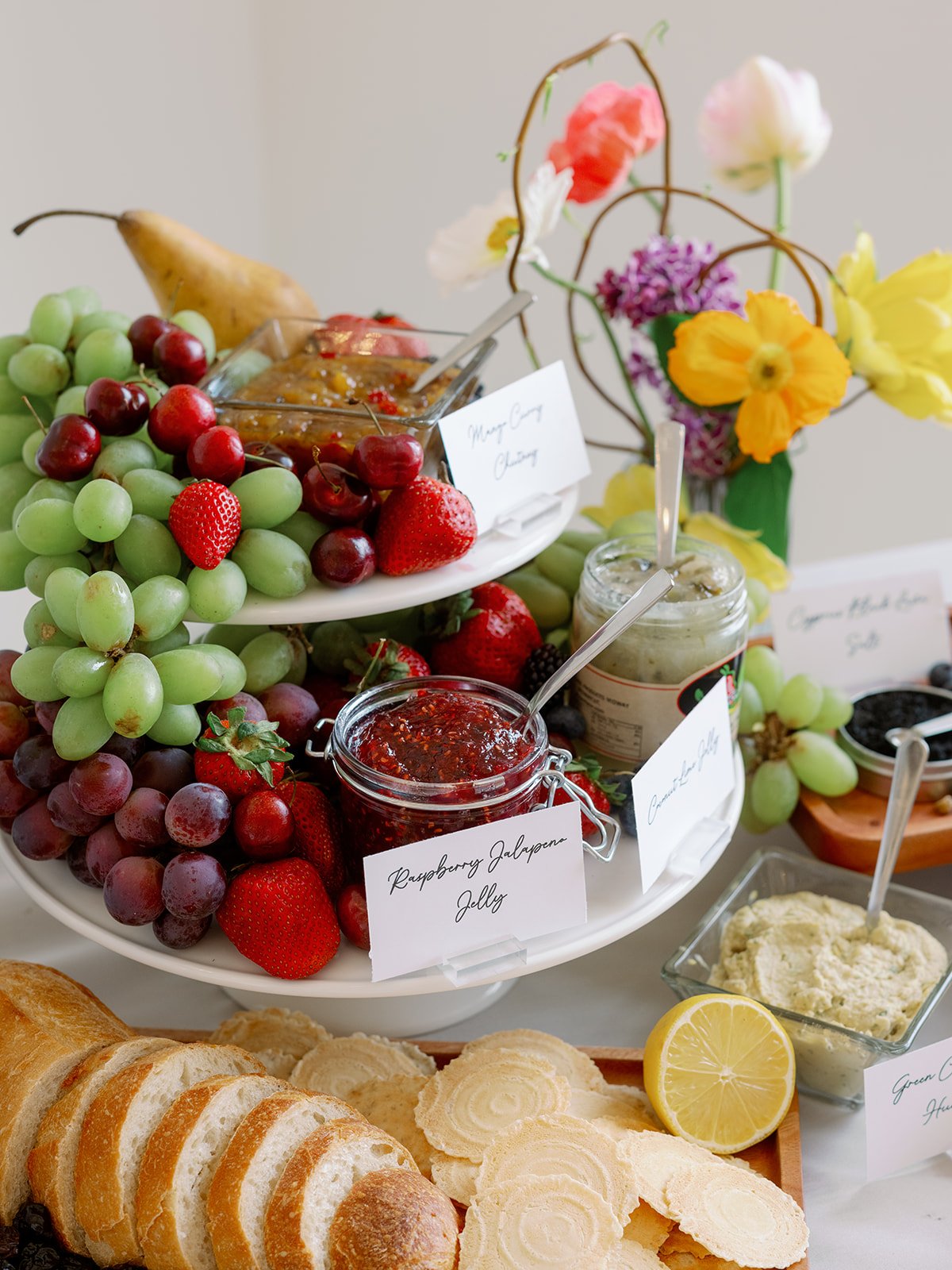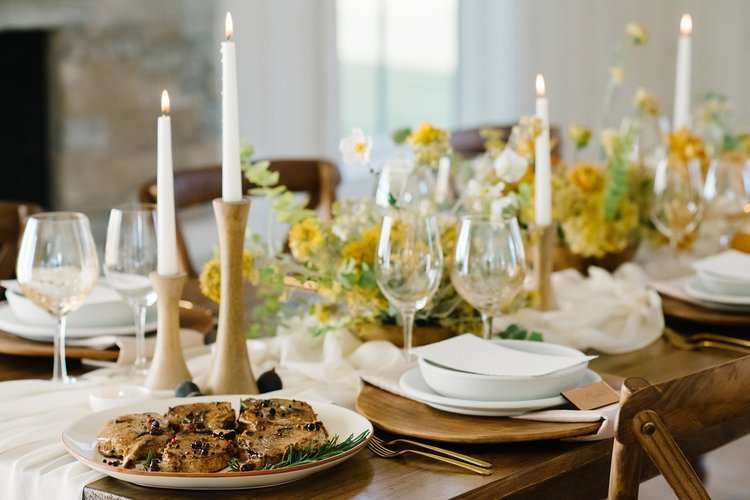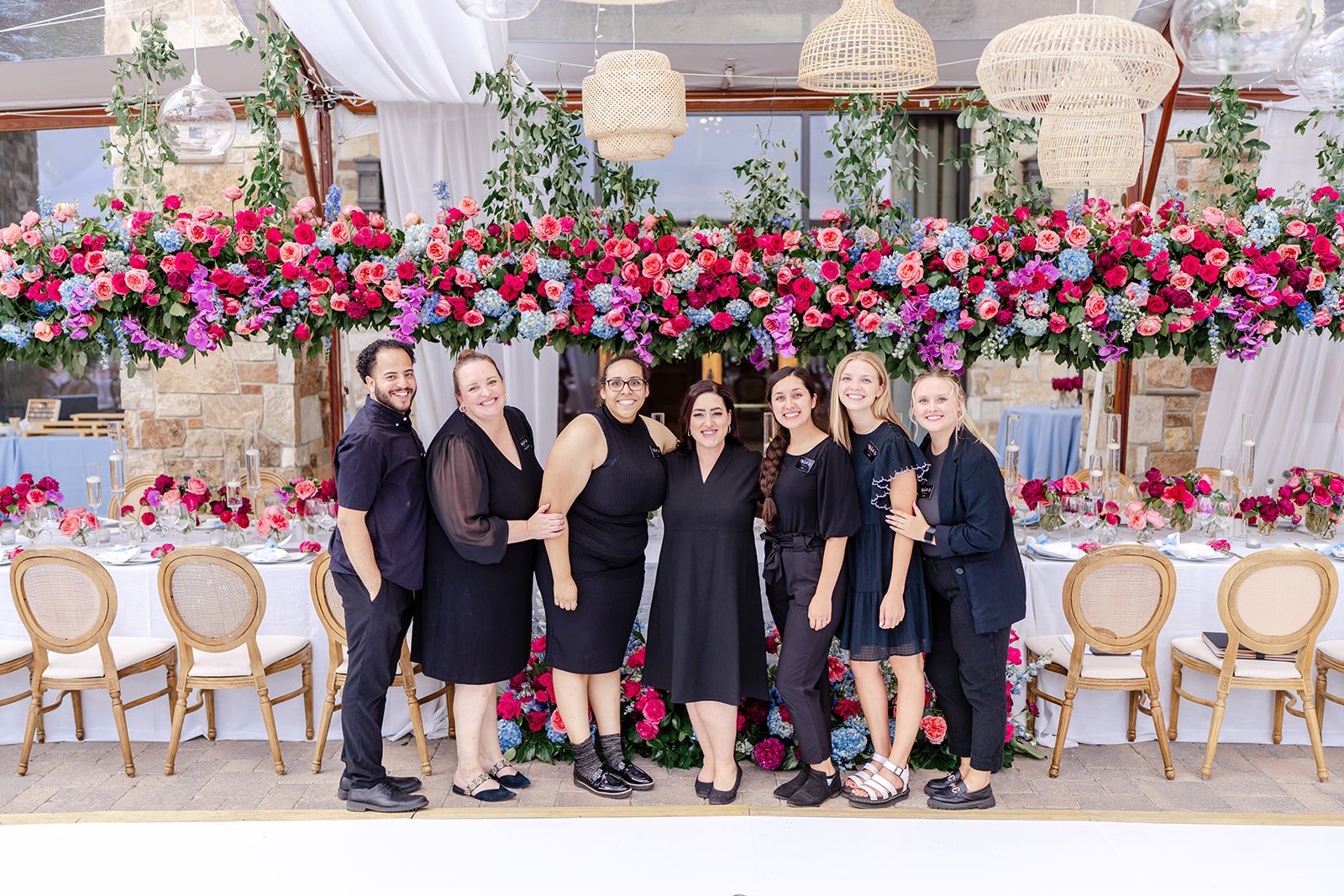Feeding Your Vendors: Essential Tips for Planning Wedding Vendor Meals
To Feed or Not to Feed - Taking Care of Your Wedding Vendors
Do I need to feed my wedding vendors? This is one of the most popular questions our event planners get asked throughout the planning process. As such, we’re sharing our answers and some guidelines for when it comes to making sure not only your guests, but also vendors, are taken care of on event day.
Are vendor meals required?
Yes, it’s customary to feed your vendors. However, you certainly aren’t on the hook for feeding all of your vendors. If you’re working with a wedding planner, they’ll be able to direct you on which vendors need meals especially since they are reviewing vendor contracts and will be aware which teams require food. If you aren’t working with a planner, follow the below rules of thumb and additional guidelines:
Rule #1) You must feed any vendors if a vendor meal is requested in the signed contract for services.
It is typical for the following vendors to request meals within their services contract:
Photographers (plan on the primary photographer, any additional shooters and/or assistants).
Videographers (plan on the primary videographer, any additional shooters and/or assistants).
DJs (if they are working the main event).
Bands (plan on all the musical performers plus any stage and sound tech crew).
Officiant (if the officiant is a friend or family member, they may already be invited as a guest to the wedding; however, if you’ve asked an important member of your church such as a pastor, bishop, deacon, rabbi or any other professional, it is polite to invite them to enjoy cocktail hour and dinner before their departure. Some will choose to stay while others will not).
Your wedding planner and their staff working the event (generally plan for 6 meals but you may need to provide more depending on the final size of the day-of team).
Rule #2) You should feed any vendors working 4+ hours on event day and are present when food service begins at the event.
You are not required to feed the following vendors:
Hair and makeup team (however, if the artists have an early morning start and will be staying for 4+ hours to get you and your crew looking beautiful, beverages and light snacks are always appreciated).
Ceremony musicians (typically ceremony musicians are only on site for 2-3 hours at most and do not require a meal, however, check your signed contract to make sure it isn’t a requirement).
Transportation teams.
The venue staff.
The catering and bar tending team.
Your cake baker.
The rental company staff.
Rule #3) If you’re not sure if you should provide a meal or not, and you aren’t working with a wedding planner, check the service agreement.
This is where you will find any information pertaining to required vendor meals. If the service agreement doesn’t mention it, you’re fine to assume you don’t need to provide one.
What do vendor meals cost?
The cost of vendor meals can range depending on who is providing them. For example, if you’re event is taking place at a venue such as a resort or hotel where the food and beverage services is provided, the venue will have an established rate for vendor meals.
If your event is at a private event venue and a contracted catering team is providing the food service, you’ll order your vendor meals through them, and they will provide you with their established rate for vendor meals.
Generally speaking, most vendor meals are provided at a discounted rate, and you won’t be charged the same amount as the per person cost you’re paying for your guests’ entrees.
Who determines what the vendors eat?
Similar to how cost is established, the venue or hired catering team providing food and beverage will determine what they will prepare and provide for the vendor meal. This particular menu is not one you need to worry about selecting. However, if your vendors communicate any dietary restrictions or food allergies, you’ll definitely want to make sure the venue and/or catering team is made aware.
When do vendors eat?
Aside from musical performers such as a DJ or the hired band, most vendors will eat at the same time the wedding guests are eating. Reason being is because at that time, there are no milestones happening that need to be cued by the planning team or captured by your photographer/videographer team. Once your planner finalizes the main timeline, they will work with the vendors to determine the best time for vendor meals to take place (this typically happens during the wedding dinner after any toasts or first dances have taken place).
Plan for most vendors to request a minimum of 45 mins to eat their vendor meal.
The exception to the above is the musical entertainment because they are typically responsible for providing dinner music when guests are eating. Additionally, most vocalists will request to eat at a minimum of one hour before they have to perform. Your planner will build their vendor meal into the timeline accordingly.
Where do vendors eat?
Vendors typically eat in the “greenroom” or established vendor room. You won’t need to incorporate them into your seating assignments and plan a table for them. Most venues and event spaces provide a designated/private space for your vendor team. A resort or hotel event venue will also provide the necessary tabletop items such as glassware, plates, napkins and flatware. However, if you’re celebrating offsite at a private venue where all rentals need to be brought into the space, you’ll need to account for the necessary items for your vendors in your finalized rental totals.
Things to be aware of:
Bands might provide you or your planner with a document called a “tech rider” (which is a list of their requirements that you as the client are required to provide). Sometime tech riders include specific requirements such as having water bottles on or near the stage and in the band’s greenroom. Other requirements might include things like specific snacks in the greenroom or requests like “no dairy” or “vegetarian only” meals.
It is also important to note that most vendor contracts will specify that a hot meal is required. You can’t get away with providing bags of chips and granola bars and calling it a balanced meal. Nor would you want to. The vendors requiring meals do so because they are generally logging a 12-14 hour day on their feet (sometimes even longer) and need proper nourishment and hydration to keep going and performing at their best.
Taking care of your vendors and providing the necessary meals required is an important part of making sure the day runs smoothly and that your vendors aren’t running on empty! And when their stomachs aren’t growling, they can focus on taking care of you!













